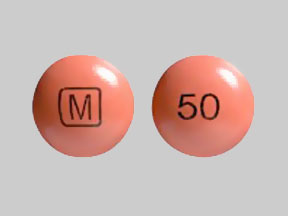Tofranil Interactions
There are 743 drugs known to interact with Tofranil (imipramine), along with 20 disease interactions, and 2 alcohol/food interactions. Of the total drug interactions, 144 are major, 572 are moderate, and 27 are minor.
- View all 743 medications that may interact with Tofranil
- View Tofranil alcohol/food interactions (2)
- View Tofranil disease interactions (20)
Most frequently checked interactions
View interaction reports for Tofranil (imipramine) and the medicines listed below.
- Adderall (amphetamine / dextroamphetamine)
- Ambien (zolpidem)
- aspirin
- Ativan (lorazepam)
- Benadryl (diphenhydramine)
- Celexa (citalopram)
- Cymbalta (duloxetine)
- Elavil (amitriptyline)
- gabapentin
- Klonopin (clonazepam)
- Lamictal (lamotrigine)
- levothyroxine
- Lexapro (escitalopram)
- lisinopril
- lorazepam
- metformin
- Neurontin (gabapentin)
- omeprazole
- Paxil (paroxetine)
- Prozac (fluoxetine)
- Remeron (mirtazapine)
- Seroquel (quetiapine)
- Synthroid (levothyroxine)
- tramadol
- trazodone
- Valium (diazepam)
- Vitamin D3 (cholecalciferol)
- Wellbutrin (bupropion)
- Xanax (alprazolam)
- Zoloft (sertraline)
Tofranil alcohol/food interactions
There are 2 alcohol/food interactions with Tofranil (imipramine).
Tofranil disease interactions
There are 20 disease interactions with Tofranil (imipramine) which include:
- anticholinergic effects
- cardiovascular disease
- pheochromocytoma
- acute myocardial infarction recovery
- cardiovascular disease
- seizure disorders
- bone marrow suppression
- diabetes
- renal/liver disease
- schizophrenia/bipolar disorder
- tardive dyskinesia
- acute alcohol intoxication
- bipolar disorder screening
- glaucoma
- hyper/hypoglycemia
- liver/renal disease
- neutropenia
- schizophrenia
- thyroid disorders
- urinary retention
More about Tofranil (imipramine)
- Tofranil consumer information
- Compare alternatives
- Reviews (16)
- Drug images
- Side effects
- Dosage information
- During pregnancy
- Drug class: tricyclic antidepressants
- Breastfeeding
Related treatment guides
Drug Interaction Classification
| Highly clinically significant. Avoid combinations; the risk of the interaction outweighs the benefit. | |
| Moderately clinically significant. Usually avoid combinations; use it only under special circumstances. | |
| Minimally clinically significant. Minimize risk; assess risk and consider an alternative drug, take steps to circumvent the interaction risk and/or institute a monitoring plan. | |
| No interaction information available. |
See also:
Further information
Always consult your healthcare provider to ensure the information displayed on this page applies to your personal circumstances.


